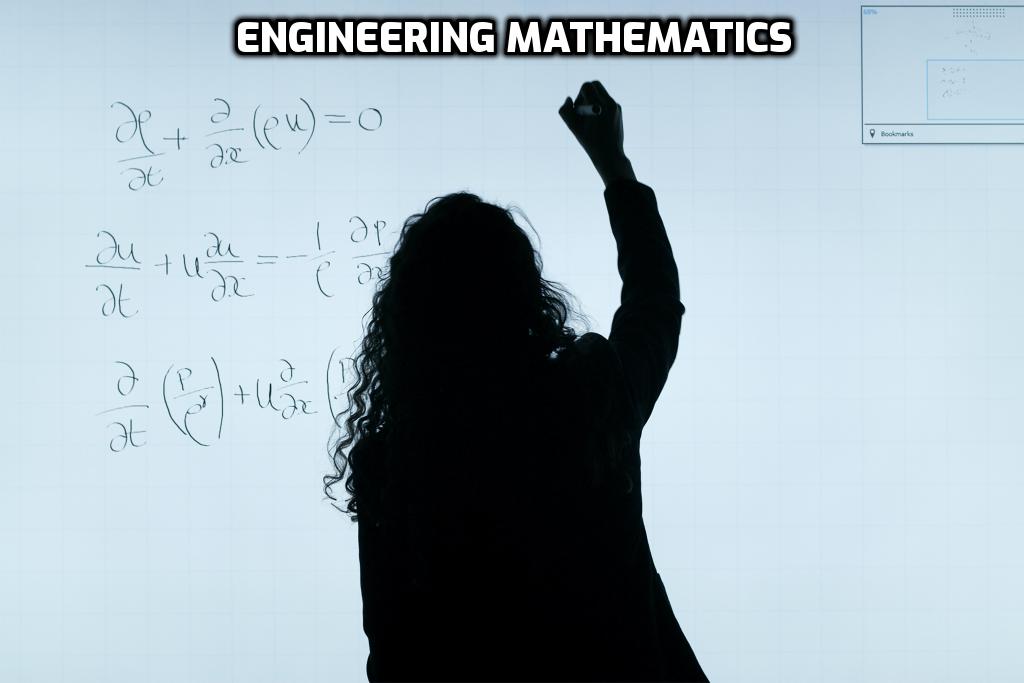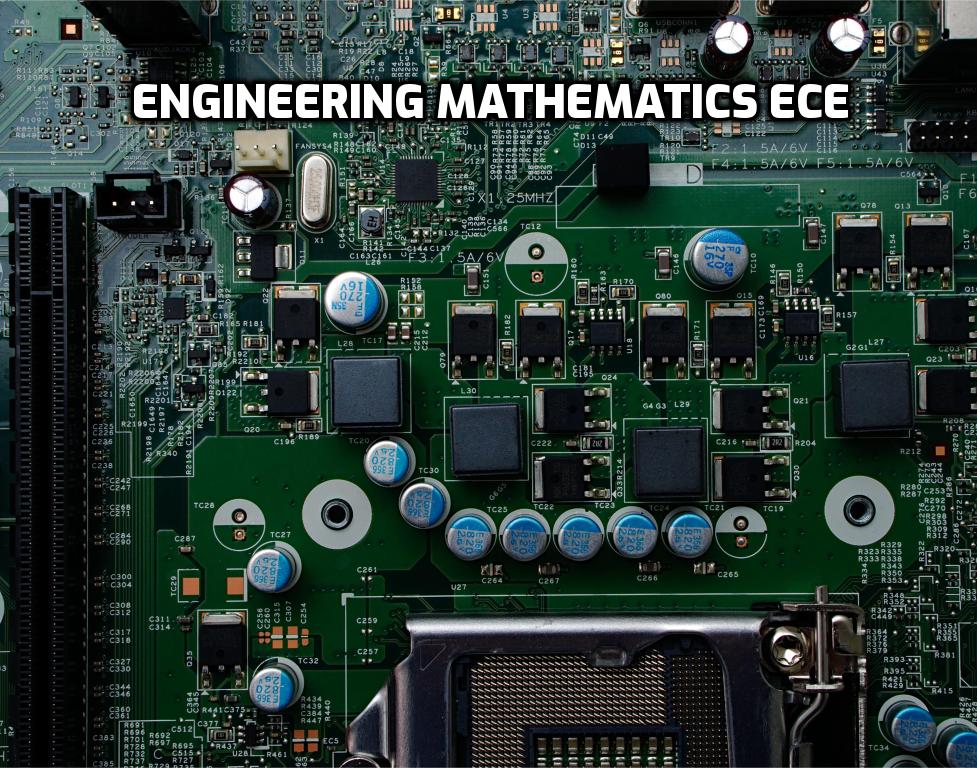Graduate Aptitude Test in Engineering(GATE) is an examination to test your comprehensive understanding of the respective subject. GATE Mathematics syllabus carries 13 marks out of 100. The organizing body for the GATE designs an exam in such a way that you can be tested for the following abilities.
- Recall
- Comprehension
- Application
- Analysis and Synthesis
To check aforesaid abilities, the Engineering Mathematics syllabus plays a significant role because Mathematics helps us to enhance our problem-solving, analytical, and reasoning abilities. The presence of this talent is must for a GATE qualified candidate.
Table of Contents
Is GATE Mathematics syllabus is same for all?
I have seen many similar queries. Therefore, I thought it would be better to answer it.

Answer to this question NO. GATE Mathematics syllabus is not the same for all the subjects. More importantly, the level of difficulty also varies you can see it clearly from previous year question papers of GATE for different subjects. scroll down to find the Engineering Mathematics syllabus for a few core branches then a conclusion statement about the similarity.
Chemical Engineering Mathematics syllabus
Linear Algebra
Linear Algebra: Matrix algebra, Systems of linear equations, Eigenvalues and eigenvectors.
Calculus
Calculus: Functions of single variable, Limit, continuity and differentiability, Taylor series, Mean value theorems, Evaluation of definite and improper integrals, Partial derivatives, Total derivative, Maxima and minima, Gradient, Divergence and Curl, Vector identities, Directional derivatives, Line, Surface and Volume integrals, Stokes, Gauss and Green’s theorems.
Differential equations
Differential equations: First order equations (linear and nonlinear), Higher order linear differential equations with constant coefficients, Cauchy’s and Euler’s equations, Initial and boundary value problems, Laplace transforms, Solutions of one-dimensional heat and wave equations, Laplace equation.
Complex variables
Complex variables: Complex number, polar form of complex number, triangle inequality.
Probability and Statistics
Probability and Statistics: Definitions of probability and sampling theorems, Conditional probability, Mean, median, mode and standard deviation, Random variables, Poisson, Normal and Binomial distributions, Linear regression analysis.
Numerical Methods
Numerical Methods: Numerical solutions of linear and non-linear algebraic equations. Integration by trapezoidal and Simpson’s rule. Single and multi-step methods for the numerical solution of differential equations.
Are you a GATE aspirant? If yes check the complete GATE Chemical Engineering Syllabus.
GATE Mathematics syllabus for Mechanical engineering
Linear Algebra
Linear Algebra: Matrix algebra, systems of linear equations, eigenvalues, and eigenvectors.
Calculus
Calculus: Functions of single variable, limit, continuity and differentiability, mean value theorems, indeterminate forms; evaluation of definite and improper integrals; double and triple integrals; partial derivatives, total derivative, Taylor series (in one and two variables), maxima and minima, Fourier series; gradient, divergence and curl, vector identities, directional derivatives, line, surface and volume integrals, applications of Gauss, Stokes and Green’s theorems.
Differential equations
Differential equations: First order equations (linear and nonlinear); higher-order linear differential equations with constant coefficients; Euler-Cauchy equation; initial and boundary value problems; Laplace transforms; solutions of heat, wave, and Laplace’s equations.
Complex variables
Complex variables: Analytic functions; Cauchy-Riemann equations; Cauchy’s integral theorem and integral formula; Taylor and Laurent series.
Probability and Statistics
Probability and Statistics: Definitions of probability, sampling theorems, conditional probability; mean, median, mode and standard deviation; random variables, binomial, Poisson, and normal distributions.
Numerical Methods
Numerical Methods: Numerical solutions of linear and non-linear algebraic equations; integration by trapezoidal and Simpson’s rules; single and multi-step methods for differential equations.
GATE Mathematics syllabus for civil engineering
Linear Algebra
Linear Algebra: Matrix algebra; Systems of linear equations; Eigenvalues and Eigenvectors.
Calculus
Calculus: Functions of single variable; Limit, continuity and differentiability; Mean value theorems, local maxima and minima; Taylor series; Evaluation of definite and indefinite integrals, application of definite integral to obtain area and volume; Partial derivatives; Total derivative; Gradient, Divergence and Curl, Vector identities; Directional derivatives; Line, Surface and Volume integrals.
Ordinary Differential Equation (ODE)
Ordinary Differential Equation (ODE): First order (linear and non-linear) equations; higher order linear equations with constant coefficients; Euler-Cauchy equations; initial and boundary value problems.
Partial Differential Equation (PDE)
Partial Differential Equation (PDE): Fourier series; separation of variables; solutions of one- dimensional diffusion equation; first and second-order one-dimensional wave equation and two-dimensional Laplace equation.
Probability and Statistics
Probability and Statistics: Sampling theorems; Conditional probability; Descriptive statistics – Mean, median, mode, and standard deviation; Random Variables – Discrete and Continuous, Poisson and Normal Distribution; Linear regression.
Numerical Methods
Numerical Methods: Error analysis. Numerical solutions of linear and non-linear algebraic equations; Newton’s and Lagrange polynomials; numerical differentiation; Integration by trapezoidal and Simpson’s rule; single and multi-step methods for first-order differential equations.
Engineering Mathematics Syllabus for GATE CSE
Discrete Mathematics
Discrete Mathematics: Propositional and first-order logic. Sets, relations, functions, partial orders, and lattices. Monoids, Groups. Graphs: connectivity, matching, coloring. Combinatorics: counting, recurrence relations, generating functions.
Linear Algebra
Linear Algebra: Matrices, determinants, system of linear equations, eigenvalues and eigenvectors, LU decomposition.
Calculus
Calculus: Limits, continuity, and differentiability. Maxima and minima. Mean value theorem. Integration.
Probability and Statistics
Probability and Statistics: Random variables. Uniform, normal, exponential, Poisson, and binomial distributions. Mean, median, mode, and standard deviation. Conditional probability and Bayes theorem.
GATE Mathematics syllabus for ECE

Linear Algebra
Linear Algebra: Vector space, basis, linear dependence and independence, matrix algebra, eigenvalues and eigenvectors, rank, solution of linear equations- existence and uniqueness.
Calculus
Calculus: Mean value theorems, theorems of integral calculus, evaluation of definite and improper integrals, partial derivatives, maxima and minima, multiple integrals, line, surface, and volume integrals, Taylor series.
Differential Equations
Differential Equations: First order equations (linear and nonlinear), higher-order linear differential equations, Cauchy’s and Euler’s equations, methods of solution using variation of parameters, complementary function and particular integral, partial differential equations, variable separable method, initial and boundary value problems.
Vector Analysis
Vector Analysis: Vectors in plane and space, vector operations, gradient, divergence and curl, Gauss’s, Green’s and Stokes’ theorems.
Complex Analysis
Complex Analysis: Analytic functions, Cauchy’s integral theorem, Cauchy’s integral formula, sequences, series, convergence tests, Taylor and Laurent series, residue theorem.
Probability and Statistics
Probability and Statistics: Mean, median, mode, standard deviation, combinatorial probability, probability distributions, binomial distribution, Poisson distribution, exponential distribution, normal distribution, joint and conditional probability.
Conclusion
- GATE syllabus of Engineering mathematics is not exactly the same for all the subjects but there are some identical topics in between them. As, ECE, ME, CHE, and CE syllabus do not consist of Discrete Mathematics whereas CSE does.
- Chemical Engineer who is preparing for GATE has to study just basics about complex variables, contrary to it others have to study in-depth.
For the Chemical engineering subject, We have prepared a subject wise marks distribution based upon the previous year question papers analysis.
0 Comments